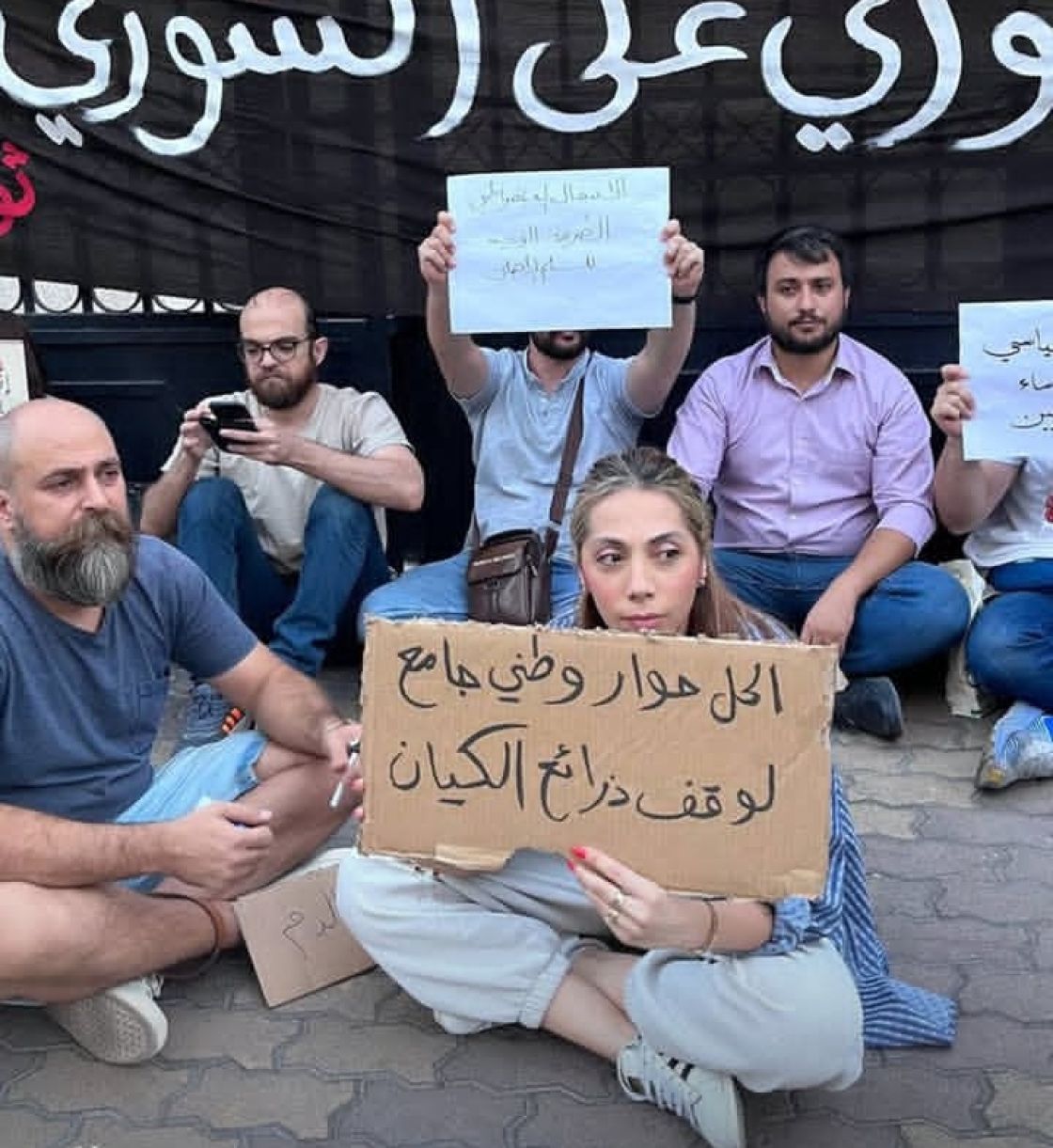- Editorials
- Posted
Kassioun Editorial 1235: What Comes After the Events in Sweida?
The fire raging in the Syrian province of Sweida has subsided, after its flames had burned the hearts of all Syrians, leaving behind more blood, pain, and tragedies. Although this fire has subsided, it has not yet been completely extinguished; like the fires lurking under the ashes throughout the country, as a result of problems and crises accumulated over decades, especially during the past 14 years, none of which have yet been addressed in a wise, serious, genuine, and responsible manner.
Among the most important lessons that the Syrian blood being shed once again teaches us are the following:
First: The de facto partition that prevailed for successive years prior to Assad’s collapse practically continues to this day. It cannot be addressed under any circumstances with a security-based approach, through imposition and force, or by seeking external support. The only solution is a comprehensive political solution based on genuine consensus among Syrians, all Syrians.
Second: Any attempt to bully Syrians, whether by a foreign side or by one group of Syrians against another, weakens all Syrian sides without exception, strengthens the foreign side at the expense of the internal, reinforces internal division, weakens the unity of society and the country, and threatens its civil peace, unity, and existence.
Third: Relying on and trusting the Americans has the same result as relying on the “Israelis”. Ultimately, both terms belong to one side with regard to our region, and they have one project: to weaken Syria and push its people to fight among themselves, ultimately dividing it and eliminating it as a geopolitical entity. This is part of a project to detonate the entire region, including Egypt, Saudi Arabia, Turkey, and Iran, in hopes of preserving the crumbling American hegemony.
Fourth: The rise in sectarian, tribal, and nationalist tensions is a direct and natural result of attempts to restrict and obscure political life through monopolization and disregarding the principle of democracy, and the rule of the people by the people and for the people. In times of crisis and difficult circumstances, people resort to rallying to defend their interests and existence, and when they find no unifying national political life, they resort to sub-national structures. This can plunge the country into a destructive cycle of violence, revenge, division, and destruction, from which everyone emerges a loser.
Fifth: The outcome of the battle, which lasted for nearly a week, is that all of us as Syrians lost and became weaker; absolutely all of us – the authority, the various forces, and society. Meanwhile, the weight and influence of foreign powers increased at the expense of our sovereignty and independence. Anyone who thinks otherwise is delusional, a harmful and fatal illusion.
What to do?
Resolving the problems that have accumulated over decades, and acceleratingly over the past few months and years, requires starting from a simple and clear idea that no sane patriotic mind would dispute: consensus among Syrians through genuine – not ornamental – dialogue, leading to real participation through which the Syrian people can determine their own destiny.
The clear path to achieving this, and to avert the specter of infighting and partition, is to convene a general national conference as soon as possible. This conference would serve as both a rescue conference and a constituent assembly, with the participation of various political and societal forces and the authority. This conference would place all matters on the table for public discussion before all Syrians, leading to agreements that produce an inclusive national unity government and a permanent constitution, and lay the groundwork for comprehensive elections at all levels, as a tool for Syrians to unify their country and determine their own destiny. These are the same steps that constitute the essence of UNSC Resolution 2254, which remains valid and remains a tool in the hands of Syrians that they can use in a way that serves their own interests and that of their country.


